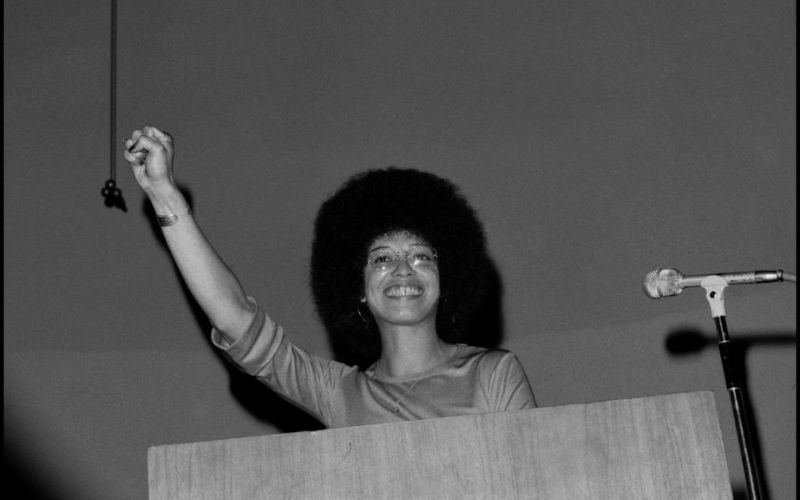In the turbulent landscape of the struggle for social justice and freedom, there are figures who stand out for their commitment, influence and determination. Angela Davis, American activist, educator and author, epitomizes this vision. For decades, she has worked tirelessly for justice, racial equality and feminism. In this article, we explore the life and legacy of Angela Davis, an inspiring icon of our time.

Early life and commitment
Angela Davis was born on January 26, 1944 in Birmingham, Alabama. Her childhood was marked by racial segregation and the injustices deeply rooted in American society at the time. It was in this context that she developed an acute social conscience and a determination to fight against inequality.
After receiving her undergraduate degree from Brandeis University, Angela Davis pursued graduate studies at the University of California, San Diego, where she earned her doctorate in philosophy. During her student years, she was exposed to revolutionary ideas and became actively involved in social justice movements.

The fight against prison oppression
One of Angela Davis’s most striking areas of activism was her fight against prison oppression. She was an important voice in denouncing the American penal system, which disproportionately targets people of color. Her commitment to prisoners’ rights began in the 1960s when she joined the civil rights movement and became a member of the Black Panther Party.
In 1970, Angela Davis was arrested and charged with murder, kidnapping and conspiracy in connection with a hostage situation at the Marin County Jail. Her trial attracted worldwide attention, becoming a symbol of the struggle for justice and human rights. Although she was acquitted, this episode strengthened her determination to fight prison injustice.
Intersectionality and feminism
In addition to her commitment to prisoners’ rights, Angela Davis has also played a key role in promoting intersectionality and feminism. She has been an influential voice in feminist movements, insisting on the importance of recognizing the multiple oppressions women face because of their race, class and sexual orientation.
Davis stressed the importance of solidarity between women and criticized feminisms that excluded or ignored the struggles of marginalized women. Her iconic book, « Women, Race, and Class », is a landmark text in feminist studies and continues to have a lasting impact.

Legacy and contemporary influence
Angela Davis’ impact on the struggle for social justice and freedom is still felt today. Her ideas and writings have inspired generations of activists around the world. She was a pioneer in the recognition of intersectionality, showing that struggles for social justice must address all forms of oppression.
Davis continues to lecture and participate in debates on a variety of issues, including the Black Lives Matter movement, the US prison system and feminism. Her work embodies hope and perseverance, reminding everyone that change is possible and that the fight for social justice is a collective responsibility.

Conclusion
Angela Davis, an icon of the struggle for social justice and freedom, has dedicated her life to defending human rights, fighting prison oppression and promoting intersectionality. Her enduring influence continues to inspire people around the world to mobilize for a more just and equitable future.
At a time when inequality persists and systems of oppression persist, the lessons learned from Angela Davis’ journey resonate deeply. Her powerful voice and unwavering commitment continue to remind us that the fight for social justice is a collective struggle that must never be abandoned.
See also our article: Rosa Parks: An icon of the civil rights struggle










